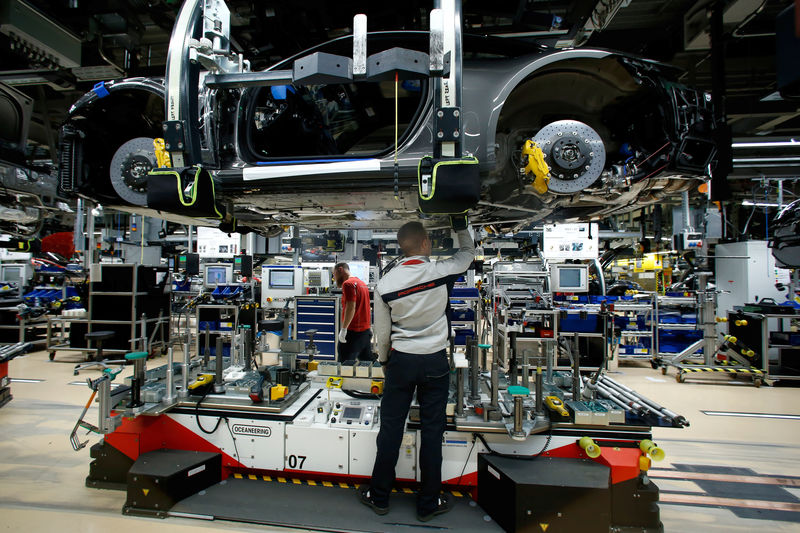BERLIN, Aug 1 (Reuters) - A recession in Germany's manufacturing sector deepened in July with factories churning out goods at the slowest pace in seven years and export orders plunging the most in more than a decade, a survey showed on Thursday.
IHS Markit's Purchasing Managers' Index (PMI) for manufacturing, which accounts for about a fifth of the economy, fell to 43.2 from 45.0 in June.
The figure came in slightly better than a flash reading published last week, but still remained well below the survey's 50.0 mark, which separates growth from contraction.
IHS Markit economist Phil Smith said a combination of trade tensions, uncertainty over Brexit, problems in the car industry and weaker Chinese growth had been a "toxic mix" for manufacturers around the globe, but particularly those in Germany.
"With no end in sight to the current malaise, Germany's manufacturers have gone into full retrenchment mode, making more aggressive cuts to both employment and their buying levels, whilst also slashing prices in an attempt to stimulate demand."
Workforce numbers fell for the fifth month running and to the greatest extent for seven years, the survey showed.
Weaker demand for materials and parts resulted in excess supply and greater competition among suppliers which triggered a drop in input prices. This made manufacturers slash their output prices for the first time since August 2016, IHS Markit said.
The survey chimed with data released earlier this week that showed German consumer price inflation eased to 1.1% in July, the lowest since November 2016, and consumer morale worsened for third month in a row heading into August.

The German economy is widely expected to have stagnated or even contracted in the second quarter. The Federal Statistics Office will release preliminary GDP growth data for April-June on Aug. 14.